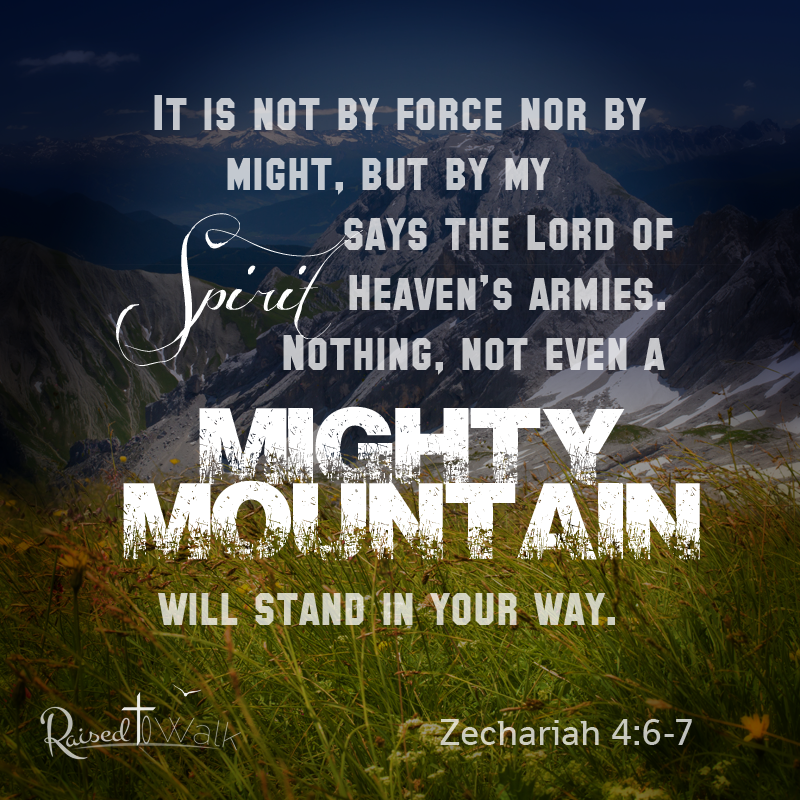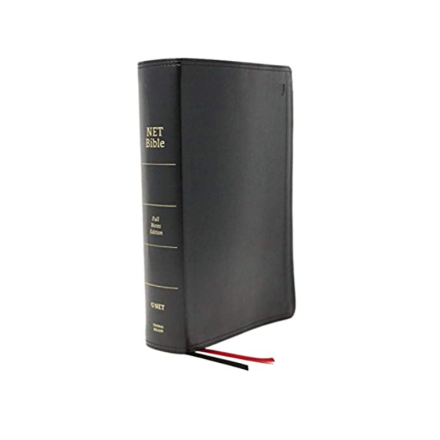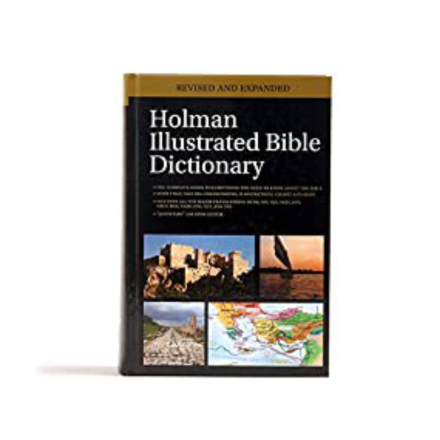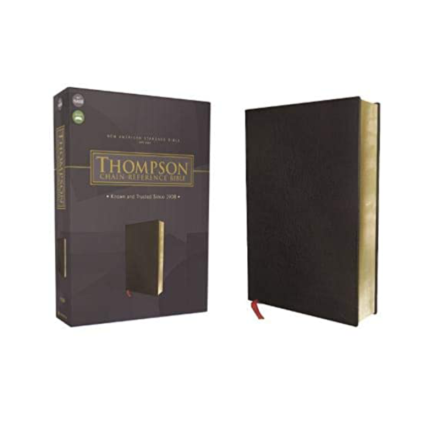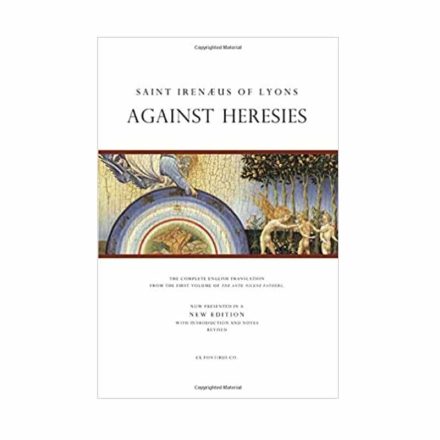Podcast (bible-study): Play in new window | Download | Embed
Subscribe: Apple Podcasts | Google Podcasts | Spotify | Amazon Music | Android | Pandora | iHeartRadio | Podchaser | Email | Deezer | RSS | More
Job’s Dilemma: When God is Great

A helpful exercise is to compare these two chapters, chapters 9 and 10, with chapter 3, which is the first we hear about Job’s thoughts about his situation. In chapter 3, he has no hope. He thinks his life is at an end and that the dead are better off than he is. There is much debate about the value of the words of Job’s friends, but what is not in question is that by their very act of being there, present in Job’s hour of need, the friends were able to help Job begin to draw his focus out of himself and out of his misery, to look outward and up.
We begin in chapter 9, where Job begins his response to Bildad who has not only given Job words of encouragement, but prophesied that Job’s latter days would be greater than his former days because God in his righteousness and goodness was just in his rewards.
Then Job answered,
2 “In truth I know that this is so;
But how can a man be in the right before God?
Job acknowledges here that Bildad is right in what he says about God: that God is just and rewards the righteous; then he highlights the fly in the ointment. God does reward the righteous, but who can really be right before God? The very fact that Job had made it a practice to act as priest for his family, offering continual atonement for transgressions, illustrates his awareness of just how often man generally, and his family particularly, fall short of what is required to be “right before God.”
3 “If one wished to dispute with Him,
He could not answer Him once in a thousand times.
4 “Wise in heart and mighty in strength,
Who has defied Him without harm?
In these verses, Job begins to describe the magnificence and majesty of God. In chapter 3, Job feels as if he is beneath God’s notice, completely insignificant. In these upcoming stanzas, allow a picture to be painted in your mind’s eye of what Job is describing.
5 “It is God who removes the mountains, they know not how,
When He overturns them in His anger;
6 Who shakes the earth out of its place,
And its pillars tremble;
7 Who commands the sun not to shine,
And sets a seal upon the stars;
This stanza is another one that is interesting to compare translations. Let’s look at how Young’s Literal Translation presents it:
5 Who is removing mountains, And they have not known, Who hath overturned them in His anger.
6 Who is shaking earth from its place, And its pillars move themselves.
7 Who is speaking to the sun, and it riseth not, And the stars He sealeth up.
In this Job says that God is the one who “is removing mountains,” who “is shaking earth,” and who “is speaking to the sun.” These verbs are in the present participle, representing an “ongoing and continuous action.[1]” Job knows God is present and acting the the course of the world; Job just doesn’t think God will act on his behalf.
God is the one who “is removing mountains.” Where else do we hear this? In Zechariah 4:6, the prophet gives a word to Zerubbabel who had been tasked with rebuilding the temple:
6 Then he said to me, “This is the word of the Lord to Zerubbabel: Not by might, nor by power, but by my Spirit, says the Lord of hosts. 7 Who are you, O great mountain? Before Zerubbabel you shall become a plain. And he shall bring forward the top stone amid shouts of ‘Grace, grace to it!’”
Zerubbabel is faced with an overwhelming task. But the word of the Lord is that the mountain will be leveled through the power of his Holy Spirit. This is the same thing that Jesus told his own disciples when he said, “if you have faith like a grain of mustard seed, you will say to this mountain, ‘Move from here to there,’ and it will move, and nothing will be impossible for you.[2]”
Ra the sun god (also known as Amun or Amun-Ra) was the supreme god of Egypt.[3] Job is saying that his God commands the sun. Ra was believed to have created the stars and the “Four Pillars” which supported the heavens.[4] Stars were believed to be beings that served Ra that would endure forever, but according to Job El seals them up.[5] Whatever the power of Ra is, Job’s God is greater. This stanza is not just proclaiming the power of the God Job worships, but is a throw down to the Egyptian powers.
8 Who alone stretches out the heavens
And tramples down the waves of the sea;
In the NET Study Notes Bible, the commentary weighs in that this verse probably simply refers to the literal waves of the sea, but notes that there is also a view that attributes this as a reference to Canaanite mythology, “The marginal note in the RSV ha “the back of the sea dragon.” The view would also see in “sea” the Ugaritic god Yammu.[6]” As Job has already addressed God’s superiority over the Egyptian gods, I think it is likely that this verse refers to other pantheons of the surrounding nations.
9 Who makes the Bear, Orion and the Pleiades,[7]
And the chambers of the south;
Again, Job is appropriating for Yahweh the accomplishments and powers that Ra/Amun-Ra claimed for himself.
10 Who does great things, unfathomable,
And wondrous works without number.
11 “Were He to pass by me, I would not see Him;
Were He to move past me, I would not perceive Him.
12 “Were He to snatch away, who could restrain Him?
Who could say to Him, ‘What are You doing?’
13 “God will not turn back His anger;
Beneath Him crouch the helpers of Rahab.
Again the NET Study Bible provides clarification on the reference to Rahab. We know of Rahab as the woman who helped the spies enter the land of Canaan as well as a woman named as a maternal ancestor of Jesus. However, this is not the same Rahab:
“Rahab” is not to be confused with the harlot of the same name from ericho. “Rahab” is identified with Tiamat of the Babylonian creation epic, or Leviathan of the Canaanite myths. It is also used in parallelism to the sea (26:12), or the Red Sea (Ps 74:13), and so comes to symbolize Egypt (Isa 30:7). In the Babylonian Creation Epic there is reference to the helpers of Tiamat. In the Bible the reference is only to the raging sea, which the LORD controlled at creation.[8]
I think these references make it very clear that Job is proclaiming the greatness of his God over all other gods. Yahweh is supreme. The greatest of all. But then we come to the dilemma. The Egyptians believed that Ra was supreme and more powerful than the other gods, but technically not omnipotent, or “all powerful. The Egyptian priests had to perform rituals each day to curse Apep, Ra’s enemy, to enable Ra to continue to be victorious. In essence, the order of the world depended on their faithful observance.[9]
So if God is omnipotent, omnipresent, omniscient, perfectly righteous and perfectly just, who was Job to petition him? How could Job possibly bother this God over all to act on his behalf? This is is the question we see in the next section of chapter 9.
14 “How then can I answer Him,
And choose my words before Him?
15 “For though I were right, I could not answer;
I would have to implore the mercy of my judge.
In this Job is pointing out that even if he were righteous, how could he stand before God.
16 “If I called and He answered me,
I could not believe that He was listening to my voice.
At this point, Job has begun looking outside of himself and reflecting on the glory of God, but he still feels separate, unworthy. How could this great God listen to him? God who is above all the pantheons of gods, who is above the powers of the earth, what would he want to say to Job of Uz?
This is the place where God’s story begins. The Book of Job was written before Genesis, before God’s inspired account of creation was given where we are told that man was created in the image of God himself and was given authority to be God’s representative on earth.[10] Who is man that God is mindful of him?[11] The representative of God himself. The story of the Bible is one of God’s plan to bridge this great gulf that Job describes in chapter 9.
It takes time for God to reveal that plan to man. God shows his love and faithfulness over and over until it comes to a point that rather than Job’s claim in verse 16 that even if he called and God answered, he couldn’t believe such an extraordinary thing that God would actually listen, the prophet Micah confidently proclaims that “My God hears me.[12]”
17 “For He bruises me with a tempest
And multiplies my wounds without cause.
18 “He will not allow me to get my breath,
But saturates me with bitterness.
There is an interesting note in the NET Bible on the word for “bruise.” It is the same used in Genesis 3:15 for the “wounding of the serpent.[13]” Genesis sets the stage for the cosmic struggle, the battle between good and evil. In the middle of that battle, that “tempest,” there is fall out. We saw in chapter one that while God withheld protection, it was Satan who was causing the calamities. Job’s trials have been unrelenting, and we see here that while Job’s perspective has begun to change, he is still feeling overwhelmed.
19 “If it is a matter of power, behold, He is the strong one!
And if it is a matter of justice, who can summon Him?
20 “Though I am righteous, my mouth will condemn me;
Though I am guiltless, He will declare me guilty.
Job is saying there is no greater one to appeal to than God. Job can do nothing other than throw himself upon God’s mercy. The line “Though I am righteous, my mouth will condemn me” reminds me of the scene at the end of Til We Have Faces by C.S. Lewis when Orual stands before the gods with the intent to condemn them for how she thinks they have wronged her, and as she hears herself speak … she realizes that she is the one who has been in the wrong. She realizes that “[her] complaint was the answer,” her own words condemn her.[14]
While Job doesn’t expound on this, there is a hint here of the reflection of the Psalmist that we aren’t even aware of our own sins when David prays that God “Keep me from lying to myself; give me the privilege of knowing your instructions.[15]” Paul notes the same thing in 1 Corinthians when he writes “My conscience is clear, but that does not make me innocent. It is the Lord who judges.[16]”
21 “I am guiltless;
I do not take notice of myself;
I despise my life.
22 “It is all one; therefore I say,
‘He destroys the guiltless and the wicked.’
Job has done what he believed to be right and still came to calamity. If there is no justice, no final recompense, no “Good End,” then what hope is there? If we do not have a “good” to look towards, a justice that is above and beyond this world, there is no point.
23 “If the scourge kills suddenly,
He mocks the despair of the innocent.
24 “The earth is given into the hand of the wicked;
He covers the faces of its judges.
If it is not He, then who is it?
The NASB translates verse 24 as “the earth is given into the hand of the wicked.” YLT is more specific. It is not a general group “the wicked,” but a specific “wicked one.” This is similar to Jesus’s prayer for protection from “the evil one” in the Lord’s prayer in Matthew 6[17]. Where is man’s hope if God will not help?
25 “Now my days are swifter than a runner;
They flee away, they see no good.
26 “They slip by like reed boats,
Like an eagle that swoops on its prey.
Job reflects on the transitory nature of life.
27 “Though I say, ‘I will forget my complaint,
I will leave off my sad countenance and be cheerful,’
28 I am afraid of all my pains,
I know that You will not acquit me.
In the face of great grief, some people go for the path of escape and distraction rather than examining their situation. Job knows that if he tries to push it under the rug and act like everything is fine, it won’t help his situation. Whatever the issue is that brought him to this point, will still be an issue.
29 “I am accounted wicked,
Why then should I toil in vain?
30 “If I should wash myself with snow
And cleanse my hands with lye,
31 Yet You would plunge me into the pit,
And my own clothes would abhor me.
Job recognizes that there is nothing that he can do through his own power to make himself right with God.
32 “For He is not a man as I am that I may answer Him,
That we may go to court together.
33 “There is no umpire between us,
Who may lay his hand upon us both.
The greater the God, the bigger the gulf between God and man. Job knows that the God he serves is a magnificent God. He has no standing and no right for relationship. How far the distance had grown since the time Adam and Eve walked daily with God in the garden in communion and fellowship. Job doesn’t think God cares or will listen.
It is the same way the leaders of Israel felt when they were invited for a fellowship meal with God on Mt. Sinai. They came into the presence and had communion with God, but then it was too much. God’s presence was too great for them to handle. They told Moses to speak to God for them. They did not want to speak to God themselves. Job also is looking for a Mediator.
34 “Let Him remove His rod from me,
And let not dread of Him terrify me.
35 “Then I would speak and not fear Him;
But I am not like that in myself.
This fear of judgment is what is keeping Job from fellowship with God, and he doesn’t see a path out.
Though Job doesn’t know it yet, help is on the way. God’s plan is in process. It was not until hundreds of years later that the full answer was revealed, but God was already working circumstances to bring about Job’s request.
14 Therefore, since we have a great high priest who has passed through the heavens, Jesus the Son of God, let us hold fast our confession. 15 For we do not have a high priest who cannot sympathize with our weaknesses, but One who has been tempted in all things as we are, yet without sin. 16 Therefore let us draw near with confidence to the throne of grace, so that we may receive mercy and find grace to help in time of need. Hebrews 4:14-16
This Bible study is part of A Study of Job (2021)
Endnotes
[1] Alfred, Justin T. “Simplified Hebrew Grammar.” Blue Letter Bible, n.d. Accessed July 1, 2021. https://www.blueletterbible.org/assets/pdf/grammars/Simplified_Hebrew_Grammar_v4.pdf.
[2] Matthew 17:20 ESV
[3] “Egyptian Gods – The Complete List.” World History Encyclopedia. Accessed July 1, 2021. https://www.worldhistory.org/article/885/egyptian-gods—the-complete-list/.
‘ Ra (Atum or Re) – The great sun god of Heliopolis whose cult spread across Egypt to become the most popular by the Fifth Dynasty (2498-2345 BCE). The pyramids of Giza are associated with Ra as the supreme lord and creator god who ruled over the land of the living and the dead. He drives his sun barge across the heavens by day, showing another aspect of himself with each advance of the sun across the sky, and then dives into the underworld at evening where the barge is threatened by the primordial serpent Apep (Apophis) and must be defended by the other gods and souls of the justified dead. Ra was among the most important and popular gods of Egypt. Even when the god Amun rose in prominence, Ra’s position was undiminished and he merged with Amun to become Amun-Ra, the supreme god.”
[4] E.A. Wallis Budge, Legends of the Gods: The Egyptian Texts, Edited with Translations (London, UK: British Museum, 1912) 11.
[5] Ibid., 21-22
There are numerous references in Egyptian texts that correspond Egyptian gods in the pantheon of Ra (and later Osiris) to stars.
[6] NET Bible, Full-notes Edition. (Nashville, TN: Thomas Nelson, 2019) Chapter 9, Note L.
[7] This verse shows the long history of human beings looking to the sky for explanation and seeing evidence of their story being told. The Bear, Orion, and the Pleiades are all constellations. A few articles about the constellations:
“Ursa Major: The Legend of the Great Bear,” Star Name Registry, accessed June 30, 2021, https://star-name-registry.com/blog/item/mythology-ursa-major.
“Learn All about Ursa Major Constellation,” Star Registration, Bear, Orion and the Pleiades, accessed June 30, 2021, https://starregistration.net/constellations/ursa-major-constellation.html.
“Big Dipper over Pyramid Mountain | Science Mission Directorate,” NASA Science, last modified November 21, 2017, accessed June 30, 2021, https://science.nasa.gov/big-dipper-over-pyramid-mountain.
Adam Mann, “100,000-Year-Old Story Could Explain Why the Pleiades Are Called ‘Seven Sisters,’” Live Science, last modified February 2, 2021, accessed June 30, 2021, https://www.livescience.com/pleiades-constellation-origin-story.html.
[8] NET Bible, Chapter 9, note Y.
[9] “Apophis.” World History Encyclopedia. Accessed July 1, 2021. https://www.worldhistory.org/Apophis/.
[10] Genesis 1:27.
[11] Psalm 8:4-8.
[12] Micah 7:7.
[13] NET Bible, Chapter 9, note O.
[14] C.S. Lewis, Till We Have Faces: A Myth Retold (New York, NY: Harcourt, Inc., 1956) 294.
[15] Psalm 119:19 NLT.
[16] 1 Corinthians 4:4 NIV.
[17] “Deliver us from evil: Ellicott’s Commentary for English Readers” on Matthew 6:13, Bible Hub, accessed July 1, 2021 https://biblehub.com/commentaries/matthew/6-13.htm.
“Deliver us from evil.—The Greek may grammatically be either neuter or masculine, “evil” in the abstract, or the “evil one” as equivalent to the “devil.” The whole weight of the usage of New Testament language is in favour of the latter meaning. In our Lord’s own teaching we have the “evil one” in Matthew 13:19; Matthew 13:38; John 17:15 (probably); in St. Paul’s (Ephesians 6:16; 2Thessalonians 3:3), in St. John’s (1John 2:13-14; 1John 3:12; 1John 5:18-19) this is obviously the only possible interpretation. Romans 12:9, and possibly John 17:15, are the only instances of the other. Added to this, there is the thought just adverted to, which leads us to connect our Lord’s words with His own experience. The prayer against temptation would not have been complete without reference to the Tempter whose presence was felt in it. We may lawfully pray to be spared the trial. If it comes, there is yet room for the prayer, “Deliver us from the power of him who is our enemy and Thine.””

